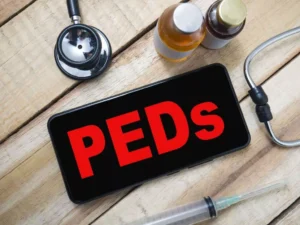Articles Oxford Houses: A Comprehensive Guide to Sober Living Homes for Recovery

While Oxford House is not affiliated with AA or NA, its members realize that recovery Substance Use Disorder can only be assured by the changing of their lifestyle through full participation in AA and NA. In most communities, the members of those organizations help Oxford Houses get started and report any charger compliance problems with respect to a particular house. Yes, the prospective residents of the House can find a suitable house, rent it, put up the security deposit and pay the first month’s rent themselves. Oxford House, Inc. will consider favorably a Charter application whether or not a loan is received from the State. Oxford Houses are built upon the principle of mutual support among recovering individuals, wherein they help each other in achieving a sober lifestyle. Residents are often involved in treatment programs, attend support group meetings, and participate in other wellness activities together.
Police ID 2 women who died in ‘historic’ flooding in Oxford
The houses are designed to provide stable surroundings for those in early recovery, often located in quiet and pleasant neighborhoods. We are currently offering financial assistance what is an oxford house to individuals wishing to move into one of the houses above. In response, policymakers have attempted to create laws allowing states to regulate sober living homes.

Typical Day at a Sober Living Home
Experience has shown that Oxford Houses work for both men and women, but not in the same house. Yes, by simply writing or calling Oxford House to ask for a Charter application. Once that application is completed and received by Oxford House, Inc., a “Conditional Charter” will be granted to the house at no cost. However, fair housing and equal opportunity laws designed to prevent discrimination have made complete regulation difficult.

Q. How many times has the average Oxford House resident been through residential treatment?
American Addiction Centers (AAC) is committed to delivering original, truthful, accurate, unbiased, and medically current information. We strive to create content that is clear, concise, and easy to understand.

Q. Can both men and women live in the same Oxford House?
It is no more difficult than for an ordinary family to find a house to rent. Each Oxford House is an ordinary single-family house with two bathrooms and four or more bedrooms. Ideally several of the bedrooms are large enough for two twin beds so that newcomers, in particular, are able to have a roommate. This discourages isolation and helps the newcomer to learn or relearn socialization to get the full benefit of recovering individuals helping each other to become comfortable enough in sobriety to avoid relapse.
Q. Are there Oxford Houses set up for special populations?
Sober living homes don’t require accreditation, a state license or oversight from a behavioral health care provider. The lack of regulation has led to the creation of homes that lack access to support services or strict rules. Studies indicate that living in sober homes after inpatient https://ecosoberhouse.com/ treatment increases recovery rates, financial strength and overall stability. In other homes, counselors or case managers visit on a regular basis to provide in-home services. Former residents and treatment alumni may visit regularly to provide additional guidance and support.
Three or more Oxford Houses within a 100 mile radius comprise an Oxford House Chapter. See the Chapters Page for more information.The World Council is comprised of 12 members, 9 of which presently live in an Oxford House, 3 who are alumni. Oxford House provides a supportive and sober living environment for individuals recovering from drug and alcohol addiction. As a democratically run, self-supporting, and drug-free home, it has helped many people in their journey towards sobriety. By comparison to other facilities, Oxford House is unique in its approach by offering structure and accountability without the supervision of professional staff. Oxford Houses are family homes that groups of recovering individuals rent to live together in an environment supportive of recovery from addiction.
Many individuals who have lived in an Oxford House find the experience to be invaluable to their recovery journey. Residents appreciate the peer-supported communal living, self-governance, and self-help aspects of the Oxford House model. These factors allow them to support each other in their efforts to abstain from alcohol and substance use. The best facilities employ compassionate staff and enforce strict rules that support the recovery process. All of a sober house’s residents are expected to pursue better health and a substance-free life.
- The homes may also be near an outpatient treatment center or on the campus of residential rehab facility.
- Some of us had lived for a time in alcoholic and drug rehabilitation facilities.
- Those ads you do see are predominantly from local businesses promoting local services.
- If an applicant does not get voted into one house he or she should try another house in the area.
- This was the purpose of the first Oxford House established in 1975, and this purpose is served, day by day, house after house, in each of over 2500 houses in the United States today.
- Oxford House will not charter a house with fewer than six individuals because experience has shown that it takes at least six individuals to form an effective group.
How much does it cost?
- Each Oxford House is managed by its residents, with each member having equal responsibilities and rights.
- However, some halfway houses are designed to reduce drug relapse rates for high-risk individuals leaving incarceration.
- The situation should be avoided whereby certain individuals will begin to equate their persuasive qualities with the Oxford House concept.
- Experience has shown that Oxford Houses work for both men and women, but not in the same house.
- All Oxford Houses have been careful to avoid undo dependence on government or other outside funds.
A house must have six or more residents in order to be recognized or chartered by Oxford House. Sober living homes can vary widely in terms of structure, rules, and cost. While some may resemble Oxford House in terms of self-governance and affordability, others may have staff, offer additional services, and come with a higher price tag. Oxford House facilities maintain a consistent model across locations, focused on peer support as an essential component of recovery. These testimonials highlight the positive impact that Oxford Houses can have on individuals in the early stages of recovery from substance addiction. With thousands of houses across the United States and other countries, Oxford Houses continue to provide a vital support system for those committed to maintaining their sobriety.





